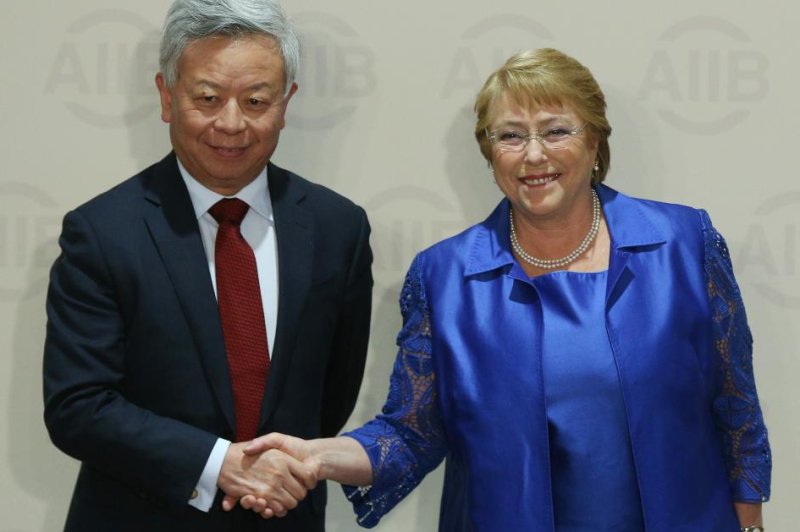Jin Liqun (L), president of the Asian Infrastructure Investment Bank, defended the institution on Wednesday. File Photo by Wu Hong/EPA
Jan. 24 (UPI) -- The head of the China-led Asian Infrastructure Investment Bank said the largest borrower of the multilateral bank is India, and not China, challenging claims the bank is working to serve unilateral interests.
President of AIIB Jin Liqun made the statement this week in Brussels, where he defended the bank's "high standards" of operations and pointed out the bank had attained the highest credit ratings, Xinhua reported Wednesday.
The Chinese official made claims of China's multilateral objectives ahead of AIIB's two-year anniversary -- and at a time when Beijing is actively promoting free trade while being targeted by U.S. President Donald Trump's administration with tariffs.
In Brussels, Jin said he has been asked by rating agencies whether China controls or dominates the bank.
"The answer is a straightforward no. We don't feel it at all in the management team."
AIIB has disclosed on its website about a quarter of all lending is going toward projects in India, or about $1 billion of $4 billion in loans.
China is voicing strong opposition to the latest U.S. tariffs against solar panels.
State tabloid Global Times issued an editorial on Wednesday condemning U.S. "safeguards" on competitive imports.
The editorial said the United States could face retaliation for triggering the first steps of a trade war with its largest partner.
The article stated the United States was the target of Chinese trade retaliation during the George W. Bush administration, when the United States imposed tariffs on Chinese steel products in 2002.
Beijing's approach to trade is drawing a sharp contrast to measures being pursued in Washington.
The Trump administration withdrew from the Trans-Pacific Partnership in 2017, signaling to trading partners it was not interested in multilateral trade deals.
Canadian Prime Minister Justin Trudeau said Tuesday a new deal similar to TPP is being formed, and that the "progressive" deal works in Canada's national interests.















